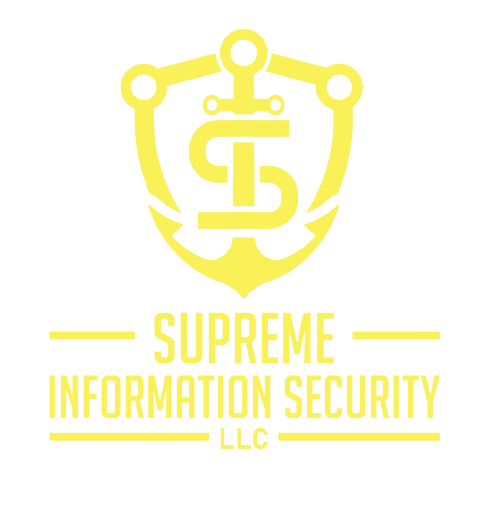The Certified SOC (Security Operations Center) Analyst-CSA certification is a globally recognized professional qualification for cybersecurity professionals. The certification validates the holder’s ability to monitor and detect cybersecurity incidents, and effectively respond and recover from them, using various technologies and techniques. It is a demonstration of expertise in effectively managing cybersecurity threats in real-time, protecting an organization’s information assets. Industries use it to verify that their cybersecurity staff possess the advanced skills needed to safeguard against evolving cyber threats. It also helps organizations comply with cybersecurity regulation bodies by proving they have trained personnel to tackle information security risks.
- Certifications
FIND YOUR COURSE
CERTIFICATIONS
- Insights
- Company
Certified SOC Analyst-CSA
- Overview
- Course Outline
Course Prerequisites
• Familiarity with TCP/IP protocols and networking
• Basic knowledge of threat, vulnerability, and risk assessments
• Understanding of Intrusion Detection/Prevention Systems
• Experience with firewalls, routers, or other network security tools
• General understanding of cybersecurity operations.
Certified SOC Analyst-CSA Certification Training Overview
Certified SOC Analyst (CSA) certification training is a professional course that sharpens individuals’ skills in threat identification and response. The training primarily covers network security controls, threat intelligence, vulnerability assessment, security operations, and incident management. It enables individuals to understand and monitor security threats, conduct security analysis, and establish effective defensive mechanisms. The course majorly targets security professionals facilitating their efforts to become specialists in their field.
Why Should You Learn Certified SOC Analyst-CSA?
The Certified SOC Analyst-CSA course provides valuable insights into cybersecurity, risk identification, and vulnerability assessment. This course enhances your ability to effectively manage security operations, enriches your skillset in threat intelligence, and strengthens incident response strategies. This certification significantly increases employability in the rapidly growing cybersecurity industry.
Target Audience for Certified SOC Analyst-CSA Certification Training
• Cybersecurity professionals seeking to advance their skills
• Individuals aiming for a career in cybersecurity
• IT professionals interested in learning about security operations
• Network Engineers/Admins seeking knowledge on cyber threat analysis
• Security operations center (SOC) personnel and operators
• Professionals aiming to earn a Cybersecurity Analyst certification
Certified SOC Analyst-CSA Skills Measured
After completing Certified SOC Analyst-CSA certification training, an individual can gain skills like understanding security concepts, evolving threats, incident management process, and triage. They also learn to manage false positive rates, risk analysis and vulnerability assessment. CSA certification improves proficiency in network, endpoint, and application security. Further, it fosters skills in Usage Threat Intelligence, understanding Intrusion Detection/Prevention Systems, Firewall/WAF, Proxies, and the ability to navigate and use Security Information and Event Management (SIEM).
-
Module 1: Security Operations and Management
- Understand the SOC Fundamentals
- Discuss the Components of SOC: People, Processes and Technology
- Understand the Implementation of SOC
-
Module 2: Understanding Cyber Threats, IoCs, and Attack Methodology
- Describe the term Cyber Threats and Attacks
- Understand the Network Level Attacks
- Understand the Host Level Attacks
- Understand the Application Level Attacks
- Understand the Indicators of Compromise (IoCs)
- Discuss the Attacker’s Hacking Methodology
-
Module 3: Incidents, Events, and Logging
- Understand the Fundamentals of Incidents, Events, and Logging
- Explain the Concepts of Local Logging
- Explain the Concepts of Centralized Logging
-
Module 4: Incident Detection with Security Information and Event Management (SIEM)
- Understand the Basic Concepts of Security Information and Event Management (SIEM)
- Discuss the Different SIEM Solutions
- Understand the SIEM Deployment
- Learn Different Use Case Examples for Application Level Incident Detection
- Learn Different Use Case Examples for Insider Incident Detection
- Learn Different Use Case Examples for Network Level Incident Detection
- Learn Different Use Case Examples for Host Level Incident Detection
- Learn Different Use Case Examples for Compliance
- Understand the Concept of Handling Alert Triaging and Analysis
-
Module 5: Enhanced Incident Detection with Threat Intelligence
- Learn Fundamental Concepts on Threat Intelligence
- Learn Different Types of Threat Intelligence
- Understand How Threat Intelligence Strategy is Developed
- Learn Different Threat Intelligence Sources from which Intelligence can be Obtained
- Learn Different Threat Intelligence Platform (TIP)
- Understand the Need of Threat Intelligence-driven SOC
-
Module 6: Incident Response
- Understand the Fundamental Concepts of Incident Response
- Learn Various Phases in Incident Response Process
- Learn How to Respond to Network Security Incidents
- Learn How to Respond to Application Security Incidents
- Learn How to Respond to Email Security Incidents
- Learn How to Respond to Insider Incidents
- Learn How to Respond to Malware Incidents
Related Courses Available
Certified Ethical Hacker v12
Certified Penetration Testing Professional
About Supreme Information
Supreme Training, a leading provider of comprehensive and cutting-edge IT training solutions. We are dedicated to empowering individuals and organizations with the knowledge and skills needed to thrive in today’s dynamic technology landscape.
SOLUTIONS
-
Value of Training
-
Group Training
-
Training Tools & Resources
-
Industries
-
Government
© 2023 Supreme Information Security LLC
proudly support with ♥ by SP SYSTEMS & NET SOLUTIONS

